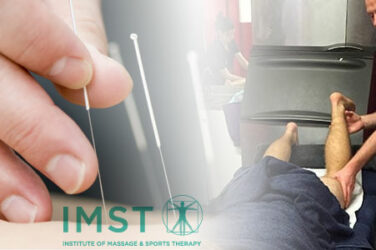Coping with Unemployment

The trouble with unemployment is that ‘the minute you wake up in the morning you’re on the job’. This saying ironically reflects how overwhelming and wearing being unemployed can be, both on a physical and emotional level. Work ends at some stage of the day, unemployment only ends when you actually become employed again. As if the unemployed don’t have enough to deal with, there are a whole range of social stigmas that come with being unemployed. Like everything else in life, it is your reaction that will determine how well you survive being unemployed. Research has shown that a positive and proactive reaction determines how long unemployment lasts.
If you have recently become unemployed, it is vital that you normalise your feelings. As with any loss, we go through grief, an emotional response to loss. Grief brings with it four different emotional states; some experience all four, and others one or two. Remember, Grief is a natural process that produces a range of emotions to help people deal with their losses and their fears. Those emotional states are: Denial, Anger, Depression and Acceptance and Hope.
How to cope well:
- Prepare: The most important thing when you are unemployed is preparation. Prepare your day; prepare a plan for your day; prepare how you will deal with questions from family and friends, and prepare how you are going to manage your finances. For example, the well-meaning questions of friends and family can bring up emotions such as embarrassment and questions from your bank can trigger panic and further stress.
- Be proactive rather than reactive. This will leave your feeling empowered. Yes, change is difficult and fear that change can bring leaves us immobilised. Lose the fear, which comes from suddenly being made unemployed. Whilst it is important to ‘feel the feelings’, it is vitally important to talk about those feelings. What is even more important is to start rebuilding yourself and putting into place the building blocks for your new future also. This instils the last stage of the grief process – acceptance and hope. Even if you don’t feel like doing it – make yourself. Being unemployed is one part of your world – not all of your world.
- Structure: It is easy to lie in bed, hoping ‘Duvet Land’ will magically create a new job or opportunities. The only thing that bed gives us is rest or restless nights. Your day as an unemployed person should be just as busy as somebody employed. Your new temporary role is: ‘Finding a job’. It is easy to fill a day searching the numerous on-line job recruitment pages and reading the job section of a newspaper. Once your daily search is over, look at how you can contribute to your community in a voluntary capacity. There are now volunteer centres around the county that can help place you as a volunteer where your skills can be utilised. Avail of courses on offer to you via the various government initiatives. Now is the time to identify the gaps in your skills and fill the gaps.
- Talk and Walk: It is really important to keep your mind and body in shape during a period of unemployment. No man is an island so ensure you have somebody to confide in or avail of free counselling services. Exercise is key to that feel good feeling. When we exercise the body releases feel good hormones. There will be no release if you sit in front of a television all day, watching Doctor Phil fixing a strangers problems. So, find a positive outlet for your frustration – work out or write it out. Whatever you do, find a way to channel the bad feelings you’re going to have, because they can build up and do terrible damage to you and the people around you if you don’t.
- Re-evaluate: If there is a lack of opportunities in your area of expertise, you might have to re-evaluate your employment goals. Ensure, you are applying for all the jobs you could potentially do? Perhaps, a short-term course could give you that one skill you are missing.
It is somewhat reassuring that the government have responded to unemployment in a number of ways. New training and education programmes which provide up-skilling and re-training measures have been introduced. Schemes such as the Springboard initiative can provide invaluable education opportunities in a wide array of areas. Springboard is a third level intervention for people who are unemployed. Applicants are generally required to already have a qualification at level 5 or more. This initiative which is ideally suited to people who have substantial work experience but who need a third level qualification to upskill or retrain in growth areas such as ICT or the Green Economy.
The Department of Social Protection also provides jobseekers with one-to-one assistance through its facilitator service. Jobs Facilitators work closely with Solas and other agencies at a local level and help jobseekers develop individual progression plans to develop their skills with the aim of improving their employment options.
ETB Adult Education Services offer a number of accredited education and training options for adults, many of which are relevant to the labour market. Each ETB has an Adult Education Officer, who co-ordinates the provision of education and training for adults. A range of options is available to suit everyone, from adult basic education, right through to the Back to Education Initiative, which offers flexible learning opportunities for people in employment. For more information, check out their website at www.etb.ie.
Solas currently co-ordinates a number of training measures which respond to the learning needs of people who are unemployed. Courses available include anything from short courses, to blended learning options which include an online element, to specific skills training relevant to particular industries or sectors. Courses are run at different times in the day and may also lead to QQI accreditation. Some of the courses provide a training allowance, as well as a contribution towards travel, meals and accommodation.
VTOS (The Vocational Training and Education Scheme) – VTOS offers a range of full time second chance educational opportunities, from basic education right through to vocational education. You must be at least 21 and in receipt of social welfare for at least six months.
Community Employment – Community Employment schemes funded through Solas offer part time training and work experience opportunities for people who are long term unemployed. Qualifying criteria vary, but in general you must be in receipt of a social welfare payment for at least a year.
Unemployment has to be taken very seriously when it happens to you. It can trigger serious mental health difficulties along with causing relationships to break down. You can negate against the negative effects of unemployment by formulating a plan to beat unemployment. Remember, failing to plan is planning to fail.




